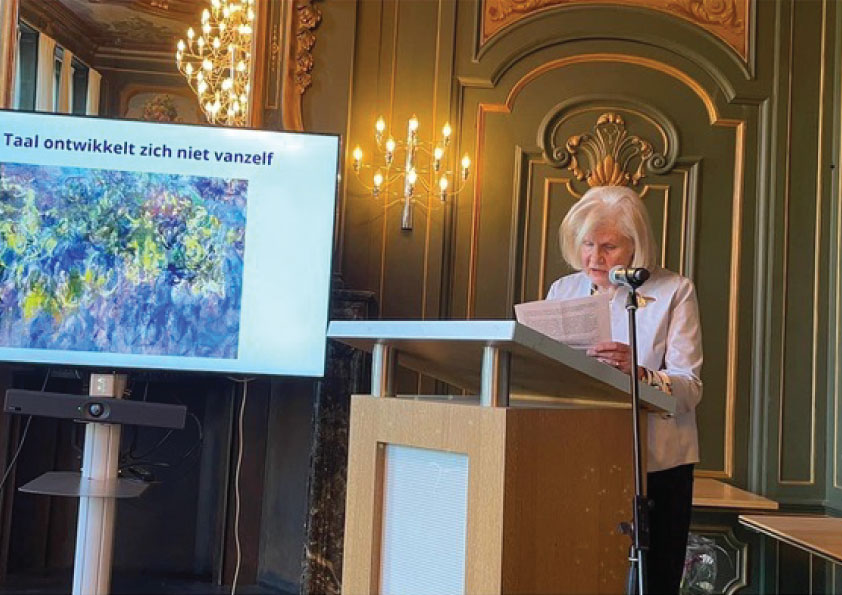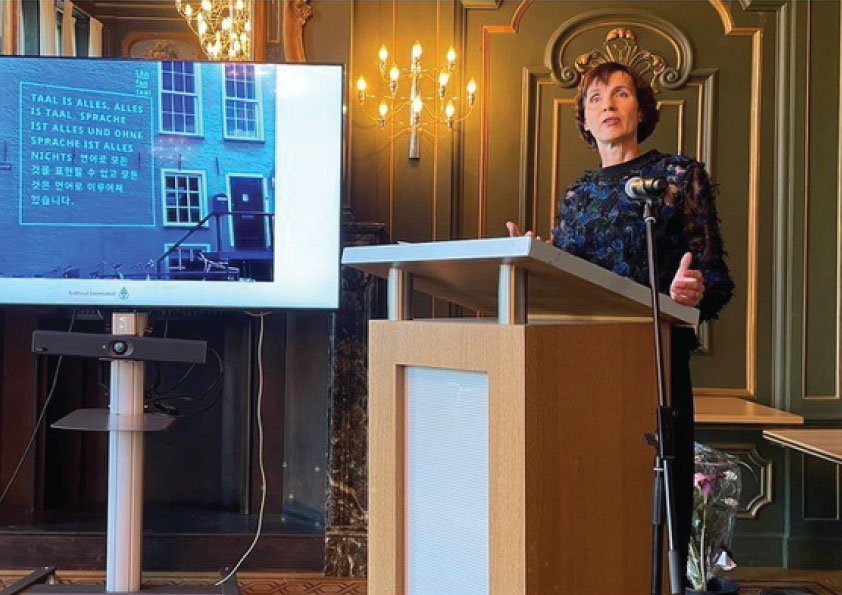Mother tongue magic
Everyone speaks a native language. That language plays a major role in our lives, even though we rarely realise this. Once you have learned your mother tongue, you speak and understand this language naturally. But no one actually knows how we acquired our mother tongue: it happened even before our earliest memories! Learning your mother tongue is so special, which is why we study this in our research group.
How do babies acquire language?
What do babies learn while listening to language? How do they learn the sounds and words of their mother tongue? And how do they 'save' these words and sounds in their mental dictionary?
Trouble in language paradise
Most children acquire their mother tongue without issues. Some kids, however, have a language development disorder and have trouble with various aspects of language. We would like to understand what happens in the acquisition process of these children, how this deviates and how we can support these children. That is why the Radboud TOS fund was recently established by Kino Jansonius. Together with Claartje Levelt(Leiden Universiteit), Paula Fikkert will be responsible for the fund's research.


Learning while playing
Er zijn ook kinderen die een andere moedertaal hebben dan het Nederlands, maar ook Nederlands leren, bijvoorbeeld op een kinderdagverblijf (vroegvoorschoolse educatie) of school. Op basisschool de Bloemberg staat een taalspeelhuisje waarin kinderen spelenderwijs taal leren (zie video).
Read more?
Interview met Paula Fikkert, hoofdonderzoeker First Language Aquisition
Tsuji, S., Fikkert, P., Yamane, N., & Mazuka, R. (2017). Language-general biases and language-specific experience contribute to phonological detail in toddlers’ word representations. Developmental Psychology, 52(3): 379-390.
Alphen P. van, Brouwer, S., Davids, N., Dijkstra, E. & Fikkert, P.(2021). Word recognition and word prediction in preschoolers with a Developmental Language Disorder: Evidence from eye-tracking. JSLHR. doi: 10.1044/2021_JSLHR-20-00227
Snijders, T. M., T. Benders, P. Fikkert (2020). Infants segment words from songs – an EEG study. Brain Sci. 2020, 10(1), 39.
Hahn, L, M. ten Buuren, T. Snijders & P. Fikkert (2020), Learning words in a second language through biking with child songs: The Noplica Energy Center. International Journal of Music in Early Childhood 15(1), 95–108.